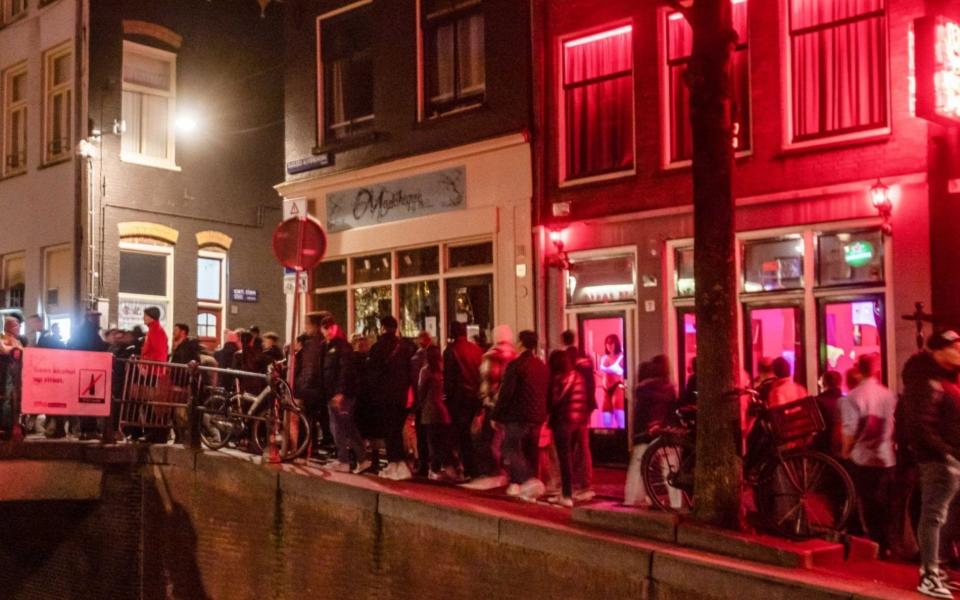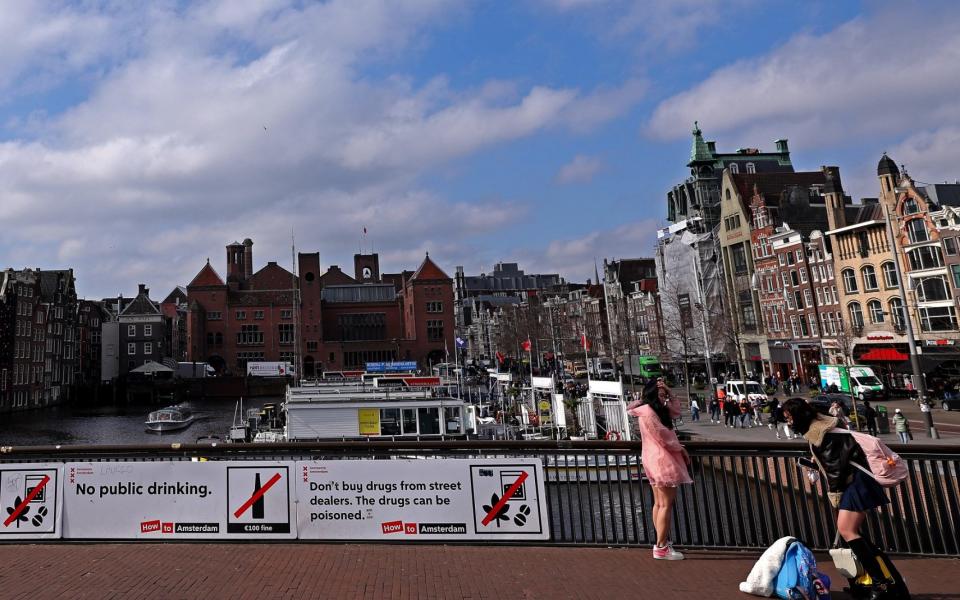Amsterdam accused of ‘lazy stereotyping’ in latest campaign against British visitors

The tourism authority in Amsterdam has been accused of hypocrisy and lazy stereotyping in its latest campaign to deter British stag groups from visiting the city.
The new campaign, released on a website called “Amsterdam Rules” and currently only shown to visitors from the UK, contains a survey that aims to “discourage a specific type of tourist from coming to Amsterdam”, according to the Municipality of Amsterdam.
The first question asks: “Why would you like to visit Amsterdam?” If you select “Stag party” the survey reads: “That’s going to be a hassle, it is forbidden to organise stag parties in Amsterdam.”
When queried by The Telegraph, a spokesman for the Municipality of Amsterdam clarified that British stag groups are not forbidden from organising trips to Amsterdam. Only specific organised tours (such as pub crawls) of a certain size in certain parts of the city are banned.
“Guided tours with more than 15 participants are not allowed. Tours past the windows of sex workers are also prohibited. The rules apply to all guided tours, including organised stag dos,” said the spokesman.
Amsterdam has clamped down on British stag groups in recent years, and in 2023 launched a “Stay Away” campaign. The so-called “digital discouragement campaign” included a series of videos aimed at British men between the ages of 18 and 34, showing inebriated tourists getting in trouble with the law.

Some British stag tour operators have pushed back against the campaign. Jon Stainer, creative director at UK stag planners StagWeb, says: “We respect the right of any destination to try to deter anti-social behaviour, but to target stag parties specifically is lazy stereotyping.
“We send thousands of stags to Amsterdam each year and the vast majority are responsible guys looking for a good time, who pump a lot of money into the local economy.
“The city is well within its right to ‘clean up its act’, but to benefit off the reputation of being a party destination for years and then criticise those that go is a bit hypocritical.”
The latest paid campaign will be targeted at Britons who use Google search terms such as “Amsterdam coffee shop”, “Amsterdam red light district” and “Amsterdam stag do”. After rolling out to UK tourists, the €125,000 (£105,000) campaign will be shown to prospective visitors from Germany, France, Italy and Spain.
The survey asks whether you plan to drink or smoke cannabis in public (forbidden), sleep in your car (prohibited), whether you plan to embark on a pub crawl or guided tour of sex-worker windows (no longer allowed), stay out late (bars close at 2am) and whether you hope to buy cocaine from a street dealer (which is illegal). If you take a wrong turn during the survey, the final page reads: “Too bad... Considering your preferences, Amsterdam may not offer the experience you’re looking for.”
Local resident Callum Booth questions whether the survey will have any impact. “Much like the Stay Away campaign, Amsterdam’s rules quiz is another ineffective way of dealing with the city’s serious overtourism problem,” he says. The Municipality of Amsterdam says that the Stay Away campaign has “not yet [had] an overall discouraging effect on the target group’s choice of Amsterdam as a party destination”.

Booth adds: “No one planning on coming to the city for a stag do will care that such activities are ‘forbidden’, much less will spend time doing an online quiz to find that out. Surely, there are better ways to dissuade problem visitors than this?”
Catherine Marie, an expert on tourism brand strategy at The Plot Thickens, points out that the majority of the target group (those aged 18 to 27) are Gen Z, who are very different to millennials in terms of their expectations and spending habits.
“The British booze culture that I grew up with from the 2000s to the 2010s has faded a little, as has the ‘Brits abroad’ label – it still exists, but not to the same extent,” Marie says.
“I think Amsterdam could have achieved a far stronger outcome by appealing to this generation with a host of other reasons to [see] the sights. Think about how cities like Berlin, Copenhagen, Split and Edinburgh have achieved this. Yes, Amsterdam has had a bigger challenge on its hands but I think there were other ways to approach this.”
Amsterdam is not alone in seeking a different type of tourist. Lanzarote last year announced a drive for higher-spending tourists, and Mallorca has introduced rules clamping down on rowdy tourist behaviour. Phil Bloomfield, a travel PR expert, says we can expect to see more campaigns of this ilk. “I believe this, and similar announcements of pivots towards ‘better’ visitors by places in Spain and Turkey, will become more commonplace in the coming years,” he says.
“In terms of this particular campaign, my view is that it’s done with a degree of wit and humility on behalf of the destination. I think the tone acknowledges that the liberalism which made Amsterdam so popular in the first place has become an albatross around its neck, and they’re now holding up their hand and asking – not unreasonably – to move on from the past.
“How it lands with particular visitor cohorts is another matter – I can hear the frothing indignation already starting to bubble – but any destination should have the right to put its residents first.”


